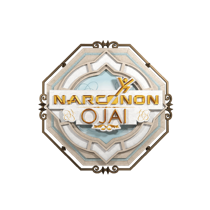Is Someone You Love Managing Their Emotions with Drugs?

Emotions contribute part of the richness of life in this world. The delight one feels during a child’s spontaneous hug and kiss—the pride that boosts one’s spirits after a major accomplishment—the quiet contentment that results from happy moments with one’s family. Without these positive emotions, life would be dull. If a person chooses to manipulate his own emotions with drugs, however, life becomes confusing, artificial and perhaps even delusional. It’s simply impossible to live a successful life this way.
Whatever emotion a person feels, a liberal application of alcohol or illicit or prescription drugs will change it. Those changes won’t always be desirable and, in fact, will very often result in more negative emotions after the drug wears off!
Let’s take a look at why and how some individuals might choose to chemically modify their emotions.
Anxiety:
Kevin was worried about the competitive atmosphere in his workplace. He was afraid he might not be able to complete his assignments as quickly and efficiently as his coworkers. An old college roommate offered him some Adderall and he suddenly had the energy to stay up late each night, finishing his work early and submitting it before others in his department.
Boredom:
There was nothing really wrong with Joe’s life as head mechanic at a dealership but he was just bored all the time. When he started smoking pot frequently, nothing changed for the better but he just didn’t care any more. He didn’t care about being bored, didn’t care that he had no goals, didn’t care when his wife left him, either.

Disappointment:
Rachel felt she had put everything she had into a musical competition and dreamed what she would do with the scholarship she might win. She didn’t win, however. In fact, she didn’t even rate in the top tier of competitors. She really didn’t want to face the fact that she hadn’t studied or practiced as hard as she could. Drinking on the weekends took that sting away. Soon, she was drinking during the week as well.
Introversion:
Christopher was the shy one in his family and hated the fact that he wasn’t comfortable hanging out with guys who might become friends. After countless nights alone, he downed a couple of beers at a company picnic and discovered that people thought he was funny when he was tipsy. Being tipsy soon became a habit.
Fear:
Jessica was a young actress who hid her terror before every performance. When she tried cocaine for the first time, it looked like the solution to all her fears. Before long, she never went on stage without using some cocaine first.
Anger:
Nathan felt he’d been wronged—by his family, his classmates, his teachers, everyone. He had no idea where all that anger came from but it never seemed to give him a break. When someone gave him some oxycodone to snort at a party, he suddenly relaxed for the first time in years. His attraction to the warm rush that results from misusing painkillers soon overwhelmed any idea that these drugs might be harmful.
Insecurity:
Matthew was always worried that others would not like him or appreciate his work. When he turned in work projects, he tortured himself worrying about his boss’s reaction. Even when his boss praised him, he was sure his boss was not saying what he really thought. His cousin told him he had a solution for his worries. A single hit of methamphetamine later and Matthew didn’t care what anyone thought. He felt like he could take on the world.
Regret:
Although he had tried hard to make his marriage and fatherhood go, Brad ended up going through a shattering and bitter divorce. Soon, his three children lived on the other side of the state and Brad was stressed to keep up his financial commitments and visitations. He was eaten up by his regrets—sorry he’d chosen this wife, sorry for every small thing he’d ever done wrong, sorry for not being there for his children. One night out with buddies, he was offered a Vicodin and a Valium and suddenly, his regrets vanished.
It’s not hard to see why people become addicted. Drugs take away many negative reactions to life. The problem is drugs come with their own package of negative reactions—physical, emotional and mental. They are addictive and cause withdrawal symptoms that can be severe or even life-threatening.
Some create some very harsh effects such as aggression, paranoia, violence, delusion and hallucinations. One drug user could find himself in the emergency room, vomiting violently for hours. Another may draw himself up into a terrified ball, unable to remember who he is. Or he could suffer desperate degradation and shame after ruining his life and the lives of his family after years of chasing drugs. Or, worst of all, he could unintentionally end his life with an overdose.
Young people deserve to be warned about the false solution offered by drugs. They also deserve to be taught real life skills that enable them to enjoy the pleasures of life and how to learn lessons from life’s challenges and disappointments. At Narconon Ojai, helping each person in recovery learn these life skills is an essential part of our program. Rehabilitation consists of far more than just getting sober and learning to deal with cravings. Real rehab means understanding how to succeed, how to overcome setbacks and how to make sober decisions even in challenging moments.
For more than fifty years, the Narconon drug rehab program has been helping individuals build new, strong and enjoyable sober lives for themselves. At our 100% drug-free facility in Southern California, we can guide someone you care about back to the richness of an authentic and honest sober life. Call us for a greater understanding of the skills we teach each of our graduates.


